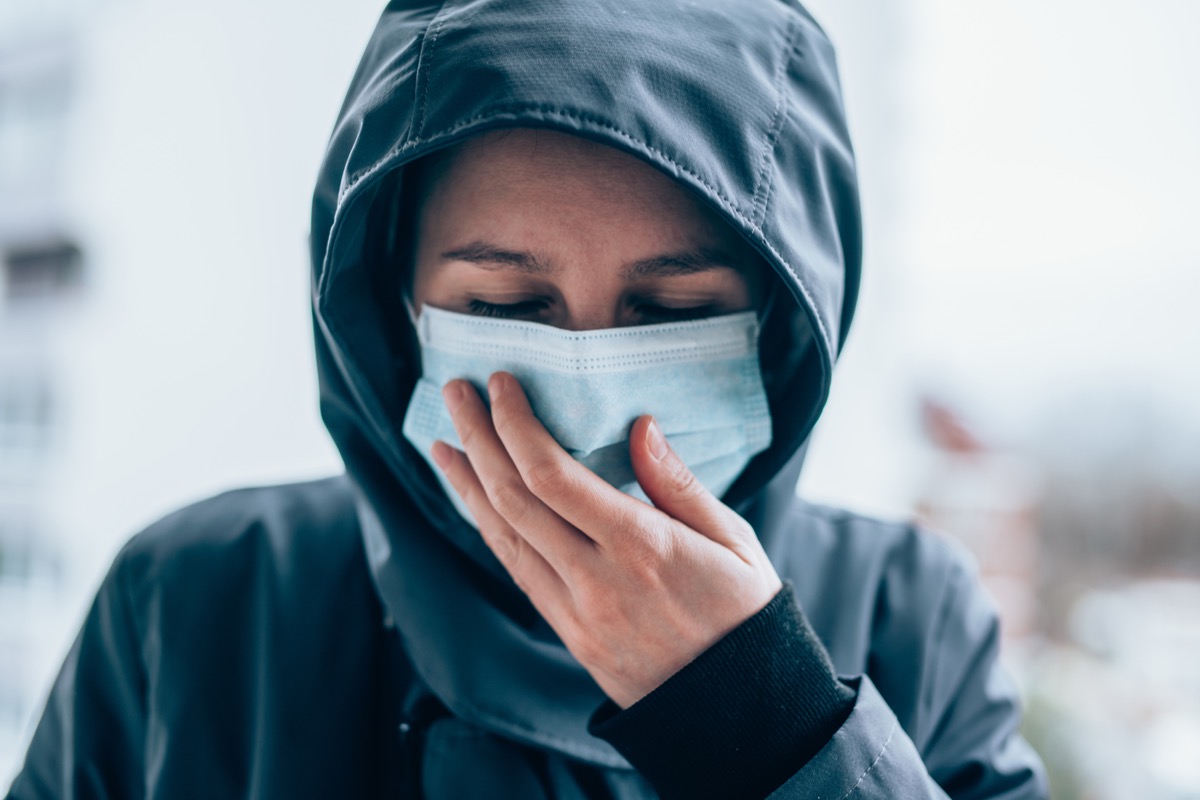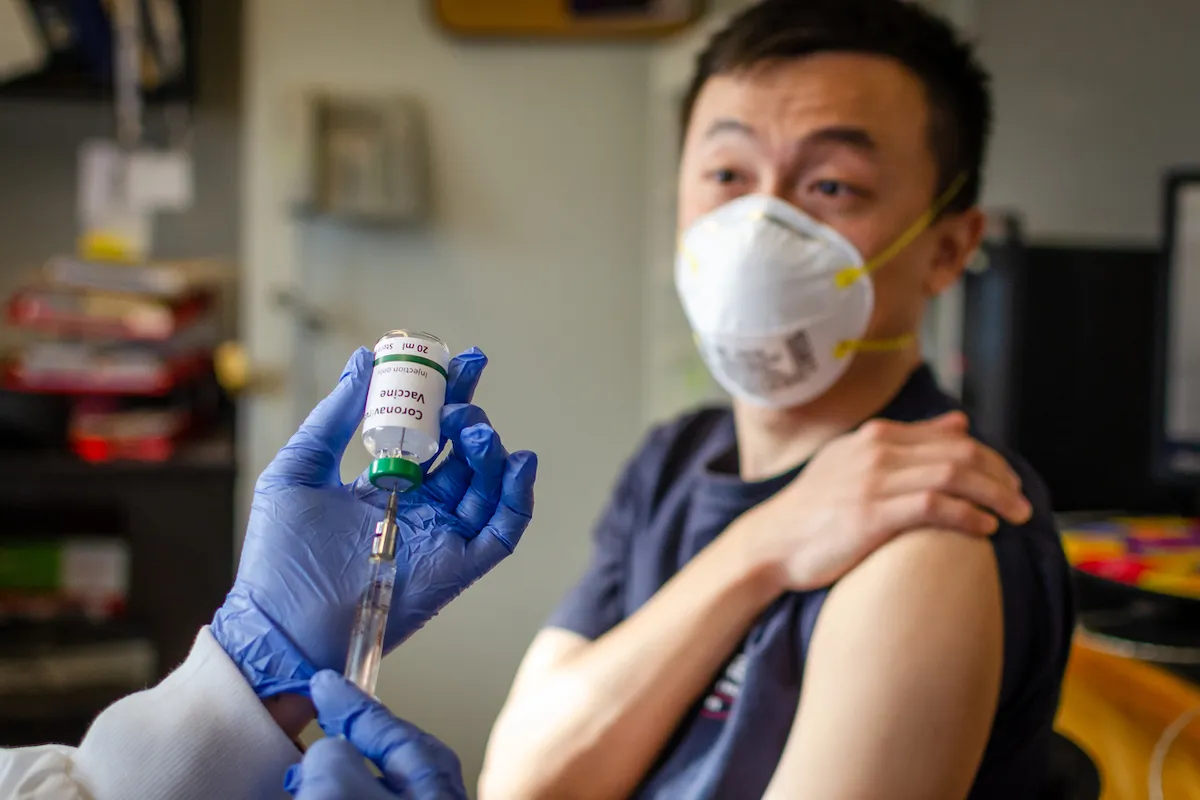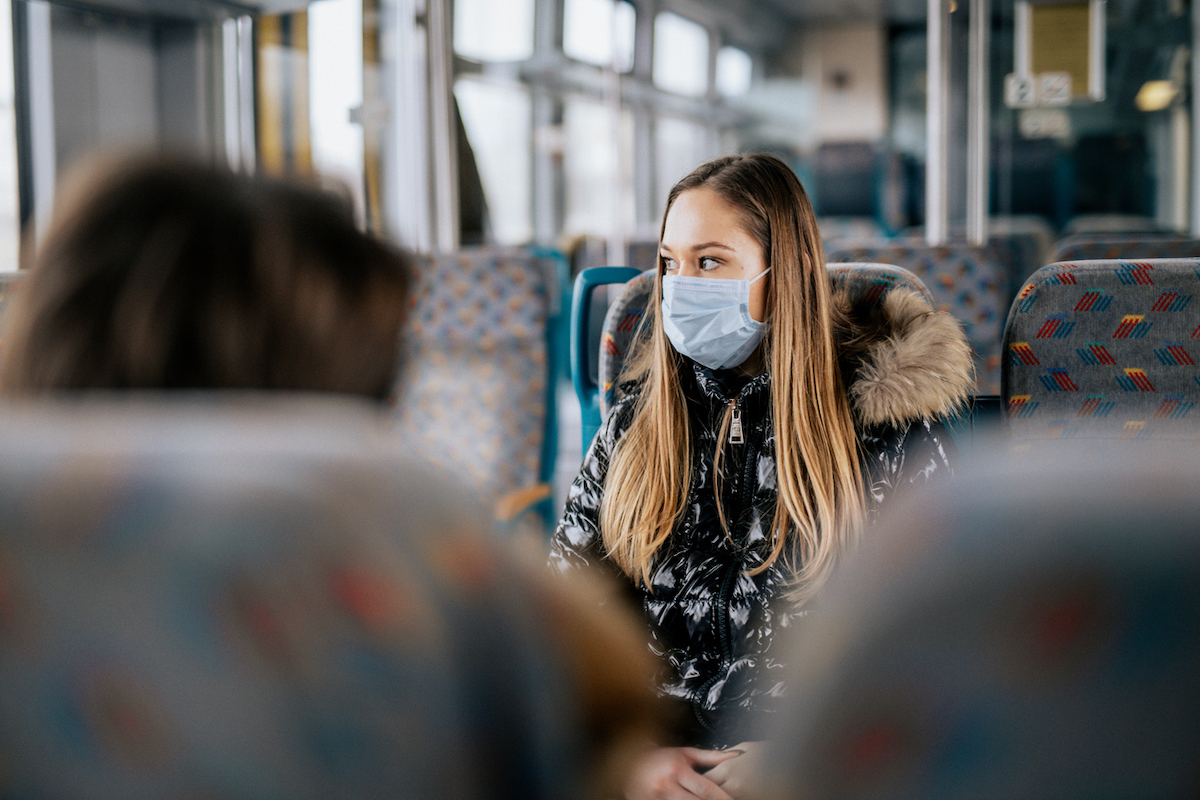In its statement, the Minnesota Department of Health notes that while the Brazilian COVID variant “is thought to be more transmissible than the initial strain of the virus that causes COVID-19 disease, it is not yet known whether the variant causes more severe illness.” And for more on how the virus is spreading, check out You’re More Likely to Get COVID From Someone Doing This Than From Coughing. If you’ve been hearing the warnings about the South African variant, then you’re familiar with the fear factor associated with the Brazilian strain. Both the South African and Brazilian variants have experts worried because they have a large number of mutations in the spike protein, which is where the virus enters your body’s cells and where vaccines and treatments are targeted, CNBC points out. That presents a concern about how effective our medication will be against them. And for more on this, check out Dr. Fauci Says This Is What’s “Disturbing” About One New COVID Strain.ae0fcc31ae342fd3a1346ebb1f342fcb While the existing vaccines from Moderna and Pfizer still offer protection against the new U.K. and South African variants, research has shown that they are slightly less effective against the latter. On Jan. 25, Moderna released a statement on the findings of its study on how the two new strains would respond to the vaccine. According to the study, Moderna said the antibodies from the vaccine saw a “six-fold reduction” with the South African strain, but “remain above levels that are expected to be protective.” The research did not include the Brazilian strain, but because the variants are similar, the vaccines “are expected to perform similarly against the variant identified in Brazil,” The New York Times reports. And for more regular COVID news, sign up for our daily newsletter. The Minnesota patient with the Brazilian strain fell ill the first week of January after having traveled to Brazil, the Minnesota Department of Health said in its statement. That suggests that the variant, which is known as B.1.1.28.1 or P.1., may not yet be widely circulating in the U.S. Minnesota’s Public Health Laboratory identified the Brazilian strain through its variant surveillance program, which collects 50 random samples from laboratories in the state each week to perform genome sequencing to determine how the virus is mutating. “We know that even as we work hard to defeat COVID-19, the virus continues to evolve as all viruses do. That’s yet another reason why we want to limit COVID-19 transmission—the fewer people who get COVID-19, the fewer opportunities the virus has to evolve,” Minnesota Commissioner of Health Jan Malcolm said in a statement. “The good news is that we can slow the spread of this variant and all COVID-19 variants by using the tried-and-true prevention methods of wearing masks, keeping social distance, staying home when sick, and getting tested when appropriate.” And for more on the signs you could be sick, find out why If You Notice This in Your Mouth, You Could Have COVID, Experts Warn. President Joe Biden is planning to extend the previous administration’s ban on non-citizens traveling to the United States from Brazil, South Africa, the U.K., and more European countries where other variants have been identified. That’s scheduled to go into effect on Jan. 30. Additionally, starting Jan. 26, passengers traveling to the U.S. from any country, including American citizens, must provide a negative test from within three days of travel or a certificate proving they’ve recovered in order to board. “These cases illustrate why it is so important to limit travel during a pandemic as much as possible,” Minnesota State Epidemiologist Ruth Lynfield, MD, said in a statement. “If you must travel, it is important to watch for symptoms of COVID-19, follow public health guidance on getting tested prior to travel, use careful protective measures during travel, and quarantine and get tested after travel.” And for more on how to stay safe, check out Dr. Fauci Just Said You Should Be Wearing This Kind of Mask Now.




